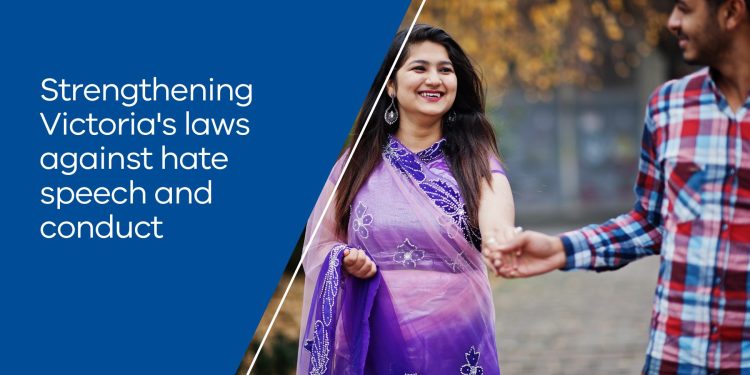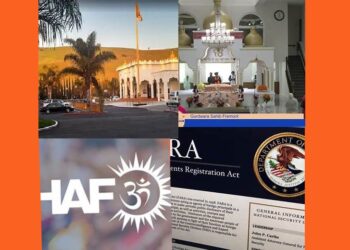The Victorian government wants to strengthen its anti-vilification protections to better prevent and address hate speech and conduct.
To ensure changes to the law are fit-for-purpose and meet the needs of all Victorians, it has launched an extensive public consultation process through Engage Victoria, with the first stage now open for community feedback.
Vilification is more commonly understood as hate speech or conduct. It is behaviour that encourages hatred against you because of who you are. This can include threats of violence – for example, writing graffiti encouraging violence against people who belong to a particular religious or ethnic group.
The Racial and Religious Tolerance Act 2001 – a key component of Victoria’s current human rights framework, alongside the Equal Opportunity Act 2010 and the Charter of Human Rights and Responsibilities Act 2006 – protects Victorians from vilification because of their race and religion.
However, people who are vilified for other reasons, such as their sexuality, gender identity and expression, sex characteristics, disability, and HIV/AIDS status, are not protected by these existing laws. Vilification is different to discrimination and sexual harassment, which are covered by different laws.
A 2021 parliamentary inquiry into the effectiveness of Victoria’s anti-vilification laws found that current protections don’t do enough to prevent or address hate speech and conduct. It found that vilification is widespread in the community and is commonly experienced by all too many Victorians – in particular, First Nations people, LGBTIQ+ communities, people with disability, women, people from culturally and linguistically diverse backgrounds, and people who belong to a particular religious or ethnic group.
This vilification harms both individuals and the broader community, and occurs across many settings, including schools, sporting grounds, workplaces, and services.
The inquiry’s report included a range of recommendations to strengthen Victoria’s civil and criminal laws against hate speech and conduct. This included a ban on the public display of the Nazi symbol, which the government has already implemented. The government has also recently committed to ban the Nazi salute in Victoria.
The Victorian government is consulting on a range of reforms to better protect the community from hate and violence, including extending the state’s anti-vilification protections beyond race and religion to cover gender identity, sexuality, sex characteristics, disability, HIV/AIDS status, and personal association.
Vilification is a complex issue that requires extensive community feedback, especially from those who are most impacted by it. Consultation will be phased throughout 2023 to enable time for communities to meaningfully contribute.
People can have their say by responding to detailed consultation papers or plain English surveys on Engage Victoria.
To share feedback or find out more about the consultation and proposed reforms, visit engage.vic.gov.au/anti-vilification











